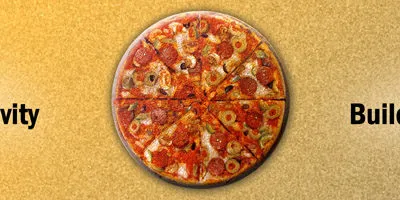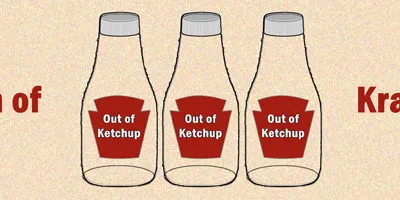Eating As A Social Activity For Effective Team Building
Posted on29 Apr 2019
Comments0
Eating as a social activity is as old as humanity. At first it’s easy to just see it as entertainment. Dig deeper... Read More
Kraft Heinz Failure And The Lessons Of Cost Cutting
The Kraft Heinz failure showcases the dangers of over focus on cost cutting. The business paradox that maximizing profits every single minute... Read More
Importance Of Connotation In Word Choice To Influence Others
The importance of connotation in word choice to influence others is hard to see. When people hear and read words, the message... Read More
Pricing, The Secret
Posted on19 Sep 2013
Tagsfood, taste, subjective, restaurant, rationale, price, neoclassical economics, James Surowiecki, Influence, The Economist, economics, Dan Ariely, anchoring, violins, lobster, supply and demand, Drazen Prelec, George Loewenstein, values, Tom Sawyer fence painting, The New Yorker
Comments2
The secret to pricing is its arbitrariness, subjectivity. What disrupts this is anchoring, a preconceived benchmark of what should be the price.... Read More
Increasing Value, Power of Stories
Posted on12 Sep 2013
Tagsbranding, food, perception, power, quantify, restaurant, storytelling, The Atlantic, values, alcohol, Bloomberg Businessweek, Graeme Wood, Antiques Roadshow, David Sax, Paul Pax, anthropology
Comments0
When you go to your next party in which people bring food, alcohol or other contributions, listen for their stories around how... Read More
Management Tips From Changing Taste Using Stories
Posted on07 May 2012
Tagsfood, IKEA, Ingvar Kamprad, interpresonal, interpretation, intuition, liquor, placebo, Placebo Management Series, politics, presentation, relationships, storytelling, T.A. Breaux, Talent, taste, The Atlantic, Wayne Curtis
Comments0
Storytelling plays a valuable role in marketing. It seems though with foods it plays another role. That is one of changing taste... Read More
People Eat Escargot, Not Snails
Posted on05 Apr 2012
Tagswords, behavioral economics, connotations, decisions, emotions, food, phraseology, problem solving, rational actor theory, Roget's Thesaurus, taste, The Economist, word choice, analogy collection
Comments3
The research behind behavioral economics is full of emotional solutions to everyday problems. By tapping into the emotional biases behind our decisions,... Read More
Euphemisms: Preferring Illusions to Reality
Posted on02 Feb 2012
TagsGeorge Orwell, 1984, A Few Good Men, cognitive dissonance, compensation, connotations, definitions, euphemisms, food, glass, illusion, Jack Nicholson, labels, Making Murder Respectable, phraseology, reality, sensitivity, The Economist, Tom Cruise, vanilla words, word choice, words
Comments4
Words have power, not only in their definitions but also, more importantly, in their connotations. The article, “Making Murder Respectable,” from the... Read More
Want to Motivate? Beware of What You Say
Posted on21 Nov 2011
Tagsword choice, Tori Rodriguez, Scientific American, phraseology, motivation, management, leadership, Influence, food, employees, constructive criticism, compliments, anchoring
Comments2
So, the boss walks in and harshly reprimands an employee. Unknowingly, she probably just shot his productivity down for the day. A... Read More
Cooperation vs. Self-interest (Pt 2): Context – The Great Influencer
Posted on29 Sep 2011
Tagsassumptions, behavior, collaboration, compliments, context, cooperation, Cooperation vs Self-interest Series, organizational culture, extrinsic, food, Harvard Business Review, Influence, intrinsic, leadership, Lee Ross, management, money, morale, motivation, Performance, pigeonholing, self-interest, Stanford, taste, Yochai Benkler
Comments1
As we saw with pigeonholing and tasting food, context influences us greatly. This extends to people’s inclinations to collaborate. In support of... Read More






